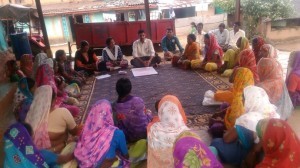Perceptions and Possibilities

Despite the bleak picture often presented on mental illness, there are new treatments available that can be delivered in culturally appropriate and relevant ways.

PC:www.sareasearch.com
Mental ill-health has a substantial impact on economies, societies, families, and individuals. Globally, there are more than 450 million people diagnosed with a mental health problem, and nearly a quarter of the disability burden is attributed to mental illness. The importance of taking action to improve mental health and prevent mental health problems extends beyond economic loss (which, in many countries, accounts for up to 4 per cent of national GDP lost annually due to loss of productivity) to considering health in a broader context inclusive of the social, cultural, political and economic factors that shape it. Inherent in every health system are challenges in how to efficiently provide more with fewer resources; however, continuing to neglect mental health translates to crores of rupees in (preventable) losses to governments.
Despite the bleak picture often presented on mental illness, we are gaining ground with respect to disseminating evidence on effective treatments, new possibilities for service delivery, workable solutions for attaining recovery and wellness for situations where access to care is limited and stigma is deeply entrenched in public opinion.
What we see emerging across a host of low and middle-income countries are a series of locally-relevant interventions and business models that facilitate recovery and well-being for people with mental health problems.
For instance, in Zimbabwe, the Friendship Bench project offers brief problem-solving therapy sessions delivered by lay health workers employed by the local municipal government on a bench on the grounds of a clinic – a simple concept that has symbolically created a more open and a welcome space for community members to come forth with their concerns.
PC:www.mhinnovation.net
In Maharashtra, the ATMIYATA project has trained community mobilisers to collaborate with local organisations to identify distress and mental health problems. These mobilisers are equipped with locally-made films on smartphones, showing familiar community problems and solutions which have been effective in strengthening community structure, problem-solving, and improving well-being in entire villages.
PC:www.grandchallenges.ca
In Tamil Nadu, we see positive results emerging from the Shared Housing project led by The Banyan, which offers housing arrangements for women with mental health problems, who without an alternative living solution run the risk of being homeless or being institutionalised.
We also see organisations and start-ups applying health technology solutions (tele-psychiatry) on platforms that facilitate access to competent and qualified counsellors and therapists, in a country like India, where geographical access to a trained mental health workforce is limited. From Europe and North America, we are now seeing the results of very successful anti-stigma campaigns that have actually shifted mindsets at home, in the workplace, and in policy discussions, such as the Bell Let’s Talk campaign in Canada and the See Me Campaign in Scotland.
These new possibilities tend to take a public health approach and focus on preventing mental health problems and alleviating distress, rather than focusing solely on curative approaches. They also work with diverse perceptions held on the causes of mental illness, be it perceived as a product of our social environment, our genetics, spirits, or a combination of all of them.
Several of these initiatives are pilots, others have sustained efforts with continued success. Regardless of the stage of development, results have been consistent: there are effective treatments for mental health problems, which can be delivered in culturally appropriate and relevant ways. We can find workable solutions that simultaneously tackle access to good quality care and address the socioeconomic factors which are so much impacted by mental ill-health. We also need to use opportunities like World Mental Health day to raise awareness and showcase success stories on how we can combat stigma and that there are effective treatments and approaches for mental illness.
-Written by Laura Sheilds-Zeeman
Adviser at SeekSpark



